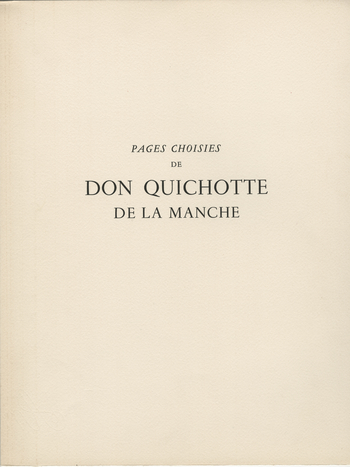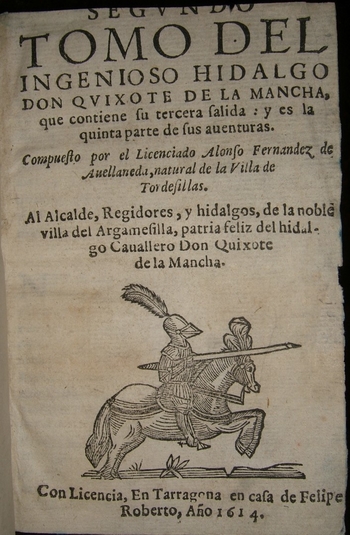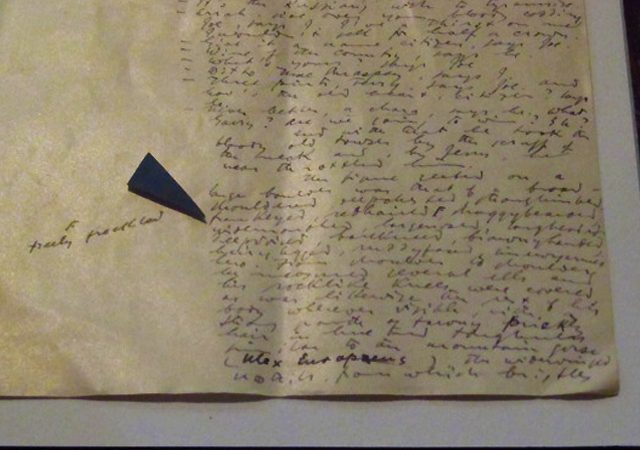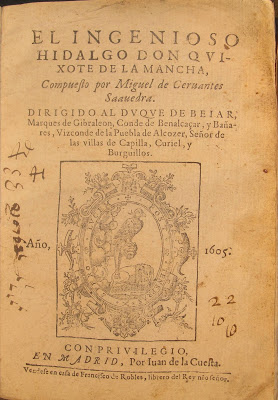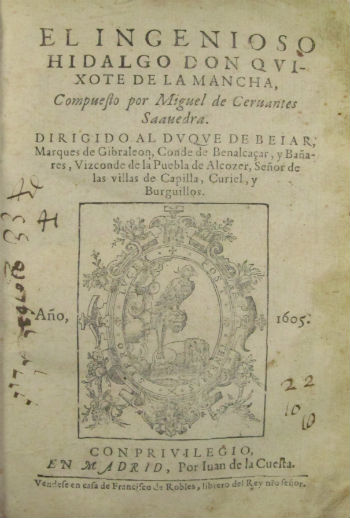
Continental Literature
Chief among these holdings is a group of Cervantes’s works, including the first edition of Don Quixote, Dr. Rosenbach’s favorite book, and documents in Cervantes’s hand. The Continental Literature collection also includes a complete, 56-volume copy of George Louis Leclerc, Comte de Buffon’s Histoire naturelle, générale et particuliére with 2,978 plates; a presentation copy of Erasmus’s Novum Testamentum (1519) with woodcuts by Hans Holbein; and small but significant holdings in French literature, ranging from an illuminated manuscript of Guillaume de Deguilleville’s Trois pélerinages (1437) to manuscripts of Emile Zola and Anatole France and the rare second edition of Jean Cocteau’s Le Livre Blanc, illustrated by Cocteau and including one of his original drawings.
Collection Highlights
Segundo tomo del ingenioso hidalgo Don Quixote de la Mancha
Related Posts
Dumas in Color
This blog post was written by Andrew White Alexandre Dumas’s father was one of Napoleon’s generals, nicknamed “Hercules” by the emperor, and “Black Devil” by France’s enemies; Dumas’s surname came from a paternal grandmother, Marie-Cessette Dumas, an Afro-Caribbean woman held in slavery on what is now Haiti. In his career as a writer, the colossally …
Making a Verbal Monster: Cyclops in Virgil’s Aeneid 3 and Joyce’s Ulysses
For this year’s Bloomsday and the rest of this summer, the Rosenbach’s partner desk display in the historic library is filled with objects that show classic literary influences on James Joyce’s Ulysses. Starting with his introduction (at age 10) to Homer’s Odyssey through Charles Lamb’s school edition, we see that the characters and language of …
The Marvelous World of Meggendorfer’s Moving Books
Did you know that pop-up books have been around for hundreds of years? The earliest examples of movable books — some as early as the thirteenth century! — were used for adult education. Books on subjects ranging from human anatomy to artistic perspective used tabs, flaps, and fold-outs to illustration information that was best conveyed …
R.I.P. Cervantes and Shakespeare
2016 marks the 400th anniversary of the deaths of both William Shakespeare (whose 450th birthday we celebrated two years ago) and Miguel de Cervantes. Traditionally it has been claimed that both men died on the same date: April 23, 1616, but modern scholars have thrown a wrench into the works by suggesting that Cervantes probably …

